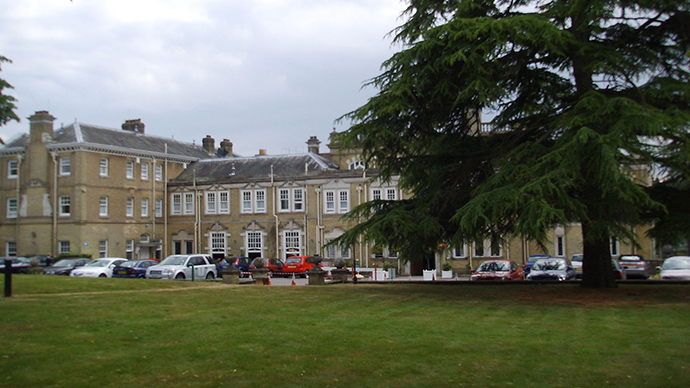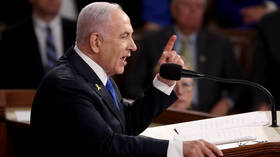University caves in to Israel lobby, bans ‘legal right to exist’ forum – organizers

Academics organizing a controversial conference on Israel’s legitimacy under international law claim the University of Southampton intends to withdraw its support, an assertion denied by the college.
Conference organizers penned an open letter on Tuesday decrying the decision on “health and safety grounds,” accusing the university of caving in under pressure from pro-Israel lobbyists.
The professors said they were considering legal action against the university, which they claim is legally obliged to uphold freedom of speech.
Almost 900 academics from around the world, including Professor Noam Chomsky, have signed a statement in support of the conference.
“This is a sad decision for freedom of speech and for historic Palestine (which includes what is now the Jewish State of Israel and the 1967 Occupied Territories) and ALL the people who live there,” the organizers wrote in a blog post.
The ‘International Law and the State of Israel: Legitimacy, Responsibility and Exceptionalism’ conference is being organized by law professors Oren Ben-Dor of the University of Southampton and George Bisharat of the University of California.
Ben-Dor and Bisharat said in a statement the university informed them on Monday it intends to withdraw permission for the conference due to health and safety concerns.
READ MORE: Right to debate? British university ‘reviewing position’ on Israel event after lobbying
Given the media attention surrounding the controversial debate, the university expects demonstrations to take place on campus.
“The university claims it does not have enough resources to mitigate the risks, despite a clear statement from the police confirming they are able to deal with the protest and ensure the security of the event,” Ben-Dor and Bisharat wrote.
A university spokesperson told RT a review of the conference was “still ongoing.”
“The University of Southampton is in discussion with the organizers of the conference ‘International Law and the State of Israel’ about the possibility of withdrawing permission for the event to be held on campus. However, this review process is still ongoing.”
“Any decision will be judged purely on considerations around the health and safety of our staff, students and for the general public,” the spokesperson added.
Conference organizers claim the university’s intention to cancel the event is due to pressure from “the Israel lobby,” which has been vocal in its opposition.
“We feel that the manner the university communicated with the police and conducted the risk assessment shows that the security argument was used to rationalize a decision to cancel the conference that has been taken under public pressure of the Israeli Lobby,” they wrote.
Conservative minister Eric Pickles wrote to the University of Southampton earlier this month asking them to ensure the conference heard “all sides of the debate.”
Last month, the UK’s ambassador to Tel Aviv Matthew Gould met with a British higher education umbrella organization to discuss the limits of academic freedom.
According to the Jerusalem Post, Gould supported Jewish community representatives in trying “to frame a debate as to where the line is crossed between freedom of speech and discourse which affects Jewish academics and students on UK campuses.”
Supporters of the conference believe the university’s health and safety concerns are a pretext. Their concerns are supported by a recent article published in the Jewish Chronicle (JC).
Speaking to the JC, Vivian Wineman of the Board of Deputies of British Jews said: “When we had a meeting with the university vice-chancellor they said they would review it [the conference] on health and safety terms.”
“The two lines of attack possible were legal and health and safety and they were leaning on that one,” he added.
According to Ben-Dor and Bisharat’s open letter, attempts by organizers to meet with the university vice-chancellor were unsuccessful.
“On the other hand, the vice-chancellor has met with pro-Israel representatives without ever calling us to attend meetings,” they wrote.
Ben-Dor and Bisharat said they were considering legal action against the college if the university pulls the plug on the debate.
To cancel the event on health and safety grounds would be “grossly disproportionate” and therefore may be illegal, they claimed.











